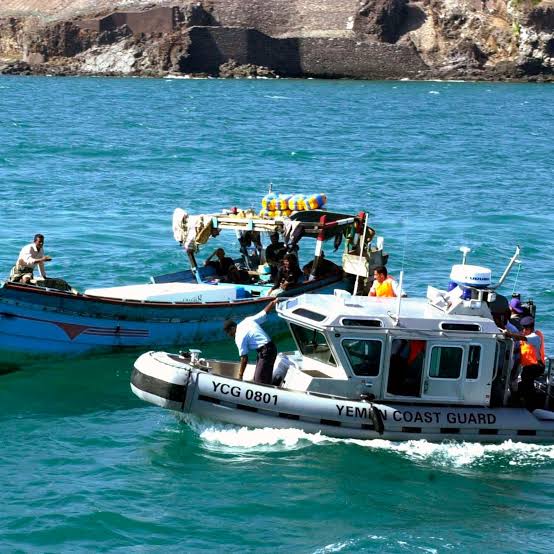Facebook Twitter (X) Instagram Somali Magazine - People's Magazine
A European Union naval task force successfully freed a Yemeni fishing vessel hijacked by Somali pirates off the northern coast of Puntland, Somalia, highlighting growing concerns over the resurgence of piracy in the region. The vessel, Al Najma, was seized on February 8, 2025, near Eyl, a location long associated with pirate activity. This attack is part of a rising trend of maritime security breaches in the Somali Basin and Gulf of Aden, signaling an alarming resurgence of piracy since late 2023.
Upon receiving distress signals, the European Union Naval Force (EUNAVFOR) ATALANTA immediately deployed naval and air assets to locate the dhow. The vessel was found sailing dangerously close to the Somali coast. An ATALANTA helicopter played a crucial role in the operation, forcing the hijackers to abandon the vessel. Once the pirates fled, a boarding team secured the ship, ensuring the safety of all 12 crew members. Fortunately, no injuries were reported, but the hijackers managed to steal personal belongings and two skiffs before escaping.
Following the rescue, EUNAVFOR personnel conducted a thorough investigation, gathering evidence to aid in future counter-piracy operations. Technical assistance was also provided to Al Najma after it suffered an engine malfunction. Throughout the operation, ATALANTA forces coordinated closely with regional maritime security partners, including Somali authorities, the Yemeni Coast Guard, and the Combined Maritime Forces (CMF). A Japanese Maritime Patrol Reconnaissance Aircraft was also involved in intelligence-sharing efforts to ensure a comprehensive response.
This hijacking underscores the persistent security threats in Somali waters. In 2024 alone, ATALANTA documented multiple piracy-related incidents, including four merchant vessel boardings and two major hijackings. In January 2025, a Chinese fishing vessel was similarly seized before being released, further fueling concerns about rising pirate activity.
Maritime security experts warn that Somali pirates often use hijacked dhows as “mother ships” to expand their operational range, enabling attacks hundreds of miles into the Indian Ocean. Analysts caution that ransom payments encourage further piracy, threatening the safety of regional trade routes and international shipping.
To counter the escalating threat, EUNAVFOR ATALANTA is urging all merchant and fishing vessels to register with the Maritime Security Centre Indian Ocean (MSCIO) under its Voluntary Registration Scheme (VRS). This system enhances monitoring capabilities and ensures a rapid response to piracy threats, reducing vulnerabilities for vessels operating in high-risk waters.
Despite significant efforts by international naval forces, piracy off the Somali coast remains a major challenge. While large-scale attacks had declined for several years, recent incidents suggest a resurgence fueled by economic hardship and weak regional governance. The successful rescue of Al Najma is a testament to the effectiveness of coordinated international efforts, but experts warn that continuous vigilance is necessary to prevent future hijackings.
As global shipping lanes remain under threat, the international community is closely monitoring developments in the region. Efforts to strengthen maritime security cooperation between Somali authorities, neighboring nations, and international partners will be critical in curbing piracy and ensuring safe passage for vessels navigating the waters off the Horn of Africa.

